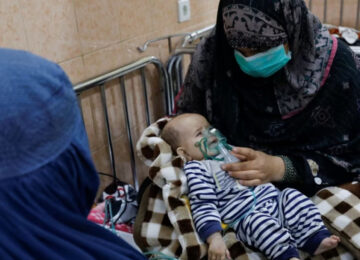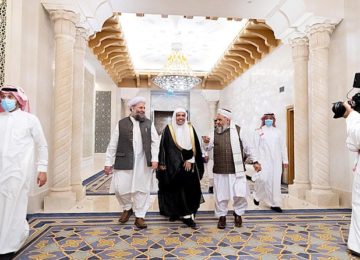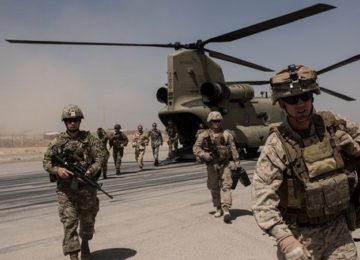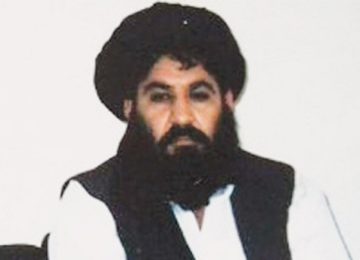October 03, 2018.
“They are humans, how have we deprived them for 30, 40 years?”, asked Prime Minister Imran Khan compassionately, while sharing his ‘unprecedented’ and ‘brave’ intentions of awarding citizenship to Pakistan-born Afghan and Bangladeshi refugees.
Khan made this announcement while speaking at a fund-raising event in Pakistan’s port city of Karachi, in Sindh province, on September 16. Khan believes that his decision would not only help reduce street crime in Karachi, but also serve as a first step toward ending discrimination faced by the migrant and refugee communities.
The announcement sent a wave of joy and hope among Afghan and Bengali refugees, many of whom gathered in front of Karachi Press Club on September 23 with Pakistani flags and singing national songs to celebrate and thank the PM.
However, the reaction of the opposition and some coalition partners was less than positive. Pakistan Peoples’ Party (PPP), an opposition party currently ruling the Sindh province, strongly opposed the decision alleging that Khan was merely trying to ‘bag more votes’ from Karachi, along with undermining economic interests of those based in Sindh, especially in Karachi.
Moreover, the Balochistan National Party (BNP) – a ruling ally- has threatened to quit the coalition if the PM does not reverse his decision. BNP leader Akhtar Mengal said the announcement to grant citizenship to the Afghans is a violation of the Memorandum of Understanding (MoU) signed between the BNP and Khan’s Pakistan Tehrik-e- Insaf (PTI) before the coalition was formed.
With complications surfacing even before a formal decision has been made, Khan is facing an uphill political and legislative task to go ahead with his announcement. Moreover, respecting democratic norms, soon after the announcement, the PM did not only listen to objections raised by the BNP and opposition parties in the National Assembly but also sought advice of Parliament on how to democratically proceed on the issue.
However, Khan also believes that not granting citizenship to the third, and in some cases, fourth generations of these refugees is not only inhumane, but also adding to their current suffering.
According to UN estimates, Pakistan hosts over 1.4 million Afghans, most of whom migrated during the 1979-1989 anti-Soviet Jihad in Afghanistan. Moreover, hundreds of thousands of Bangladeshis also reside in Pakistan, mainly in Karachi, who were either stranded or moved to the country during the 1971 War between East and West Pakistan that resulted in the creation of Bangladesh.
But since their arrival over four decades ago, not only have these refugees faced difficulties but their children born in the country have failed to get Pakistani citizenship, a right ensured by Pakistan`s Citizenship Act of 1951. Lack of access to citizenship has also forced these communities to live a life of poverty and destitution, something the cricketer-turned-politician Prime Minister understands. Moreover, the Afghans have especially been often looked at with suspicion, with some in Pakistan considering them a security threat.
In the current circumstances and considering a potential political blowback, the PM’s decision makes sense, especially when the country has majorly overcome security threats on the Western border and is seeking long term stability. Incorporating Pakistan-born refugees into the country’s mainstream would not only help these deprived communities overcome socio-economic difficulties, but can also help the nation improve security measures in the future.
Many in Pakistan believe that with current and pressing socio-economic problems, Khan making such an announcement at such a critical point was a political and tactical error. However, it seems that for the PM, empathy comes before political mileage or expediency. But even with his noble intentions, any policy decision like this one can only succeed with full support of the coalition and opposition parties in Parliament.
However, granting citizenship to over a million refugees, especially Afghans, could create regional and political complications, especially in relation to Afghanistan, and raises pertinent questions:
If Pakistan succeeds in granting citizenship to Afghans, how will the Afghan government in Kabul react?
Moreover, even if Pakistan-born refugees get citizenship, what will be the future of their parents?
These questions can only be answered through effective engagement and cooperation with not only local political parties and international refugee organizations, such as the UNHCR, but also regional stakeholders such as Afghanistan.
The author Farooq Yousaf is a Research Analyst, CRSS, and PhD (Politics) Candidate in Australia.
Originally posted on the Global Times Website.








